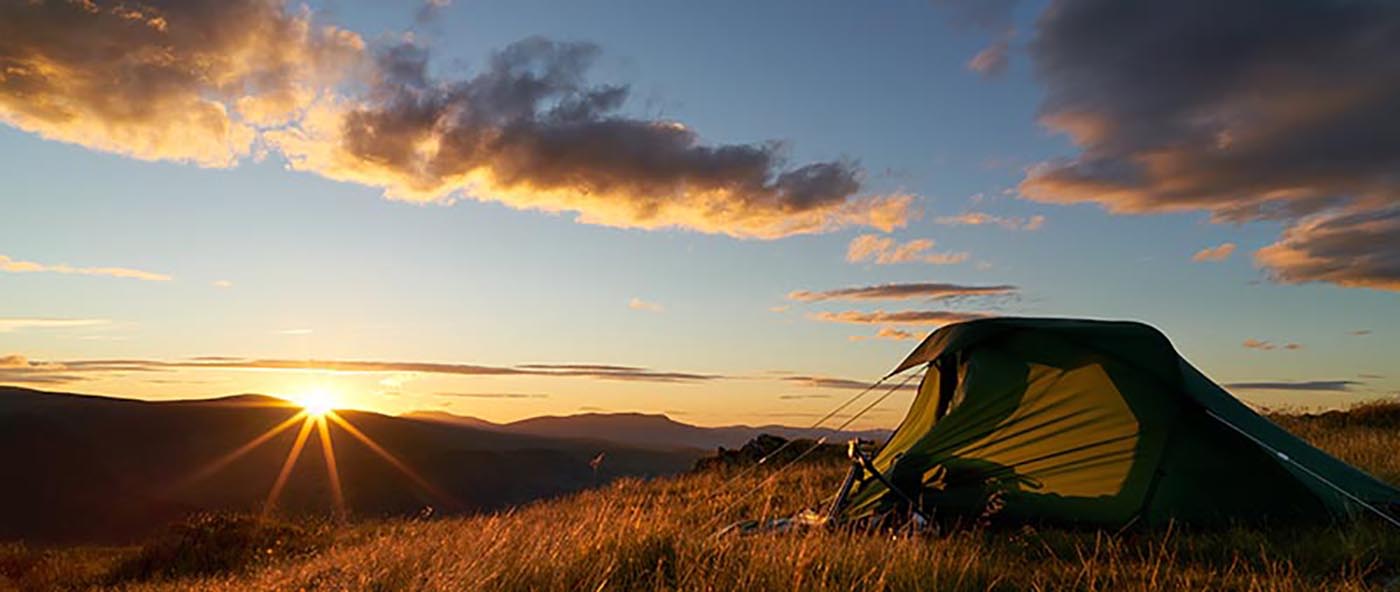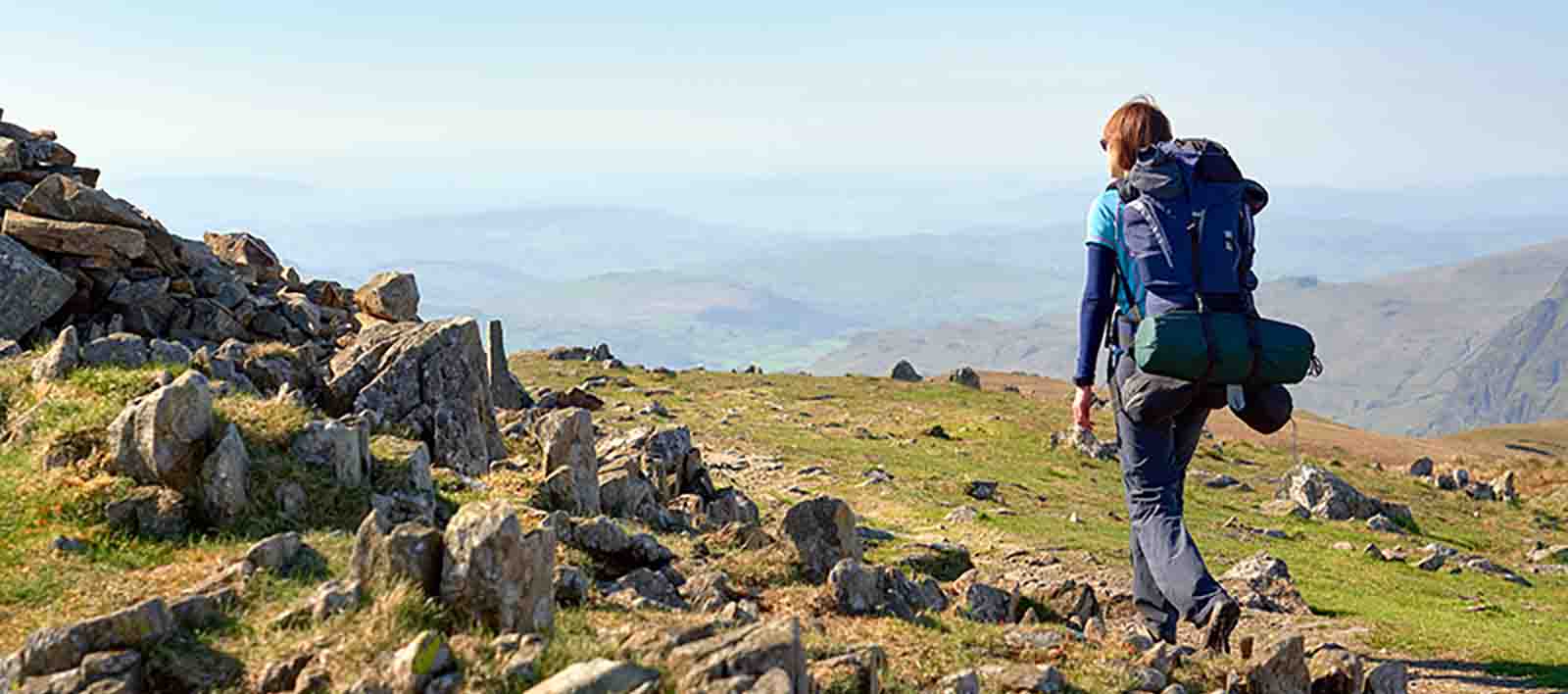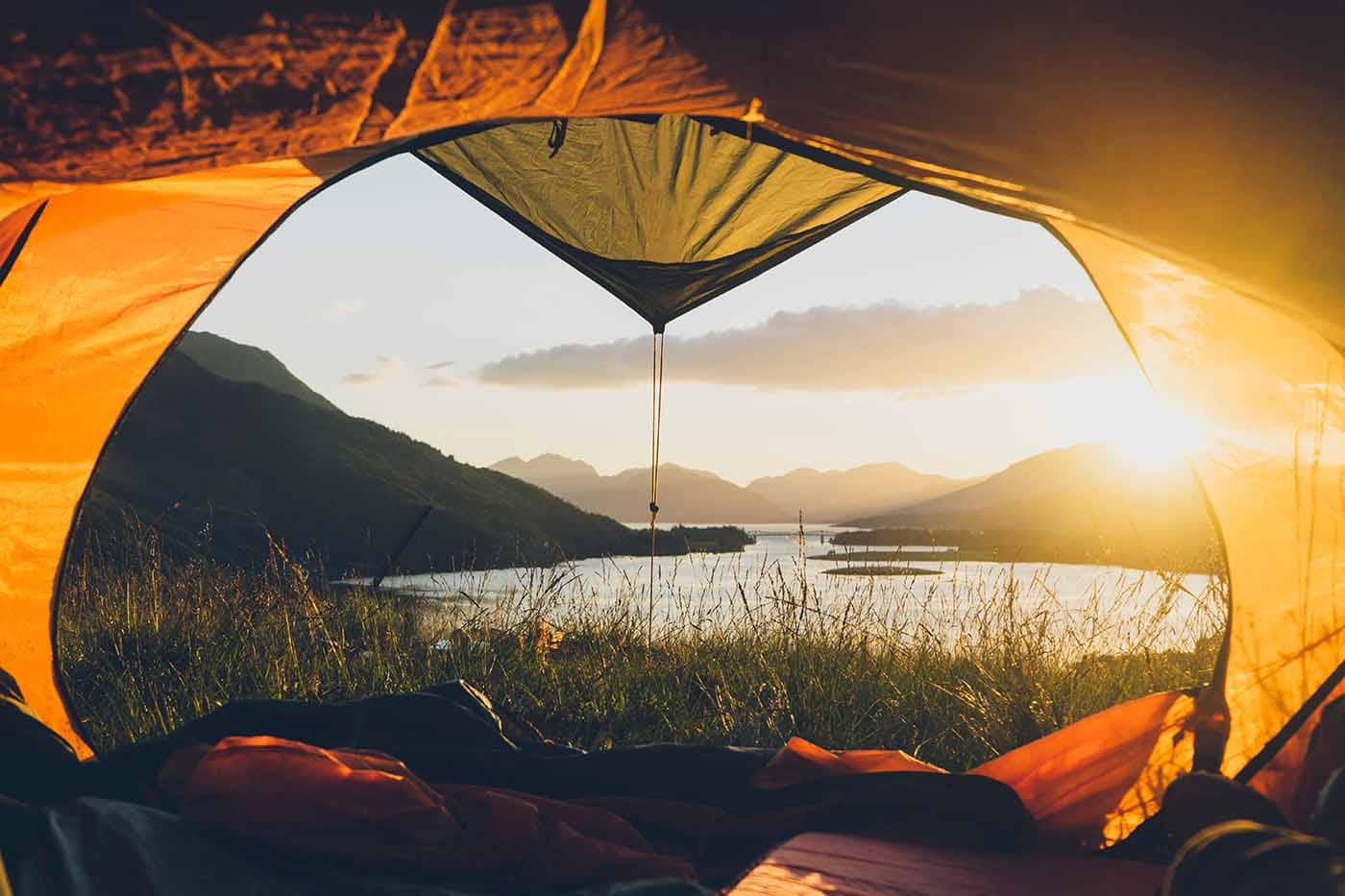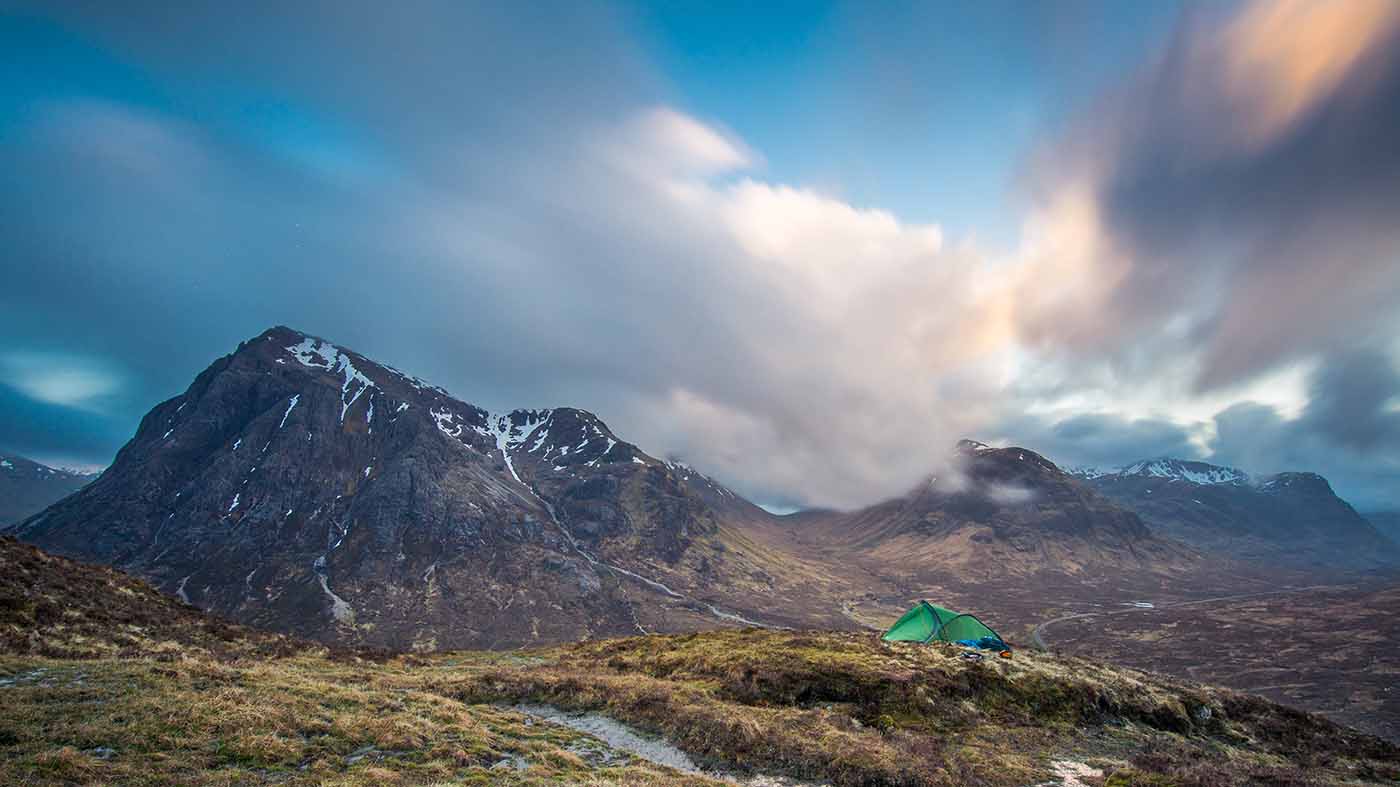What is Wild Camping in the UK – An Expert Guide
Equipment Outdoors2025-04-15T19:21:27+00:00What is Wild Camping?
Just imagine lying under the stars, surrounded by nature, and miles away from the nearest road or settlement. Wild camping is an adventurous way to embrace the outdoors in its purest form, immersing yourself in unspoiled areas far from official campsites and modern amenities-embracing a lifestyle much like our ancestors once lived. From compact, lightweight tents to the simplicity of bivvies or tarps, you can tailor your own experience to suit how comfortable or minimalist you want your wild camping adventure to be.
In this article, we’ll explore the benefits of wild camping, popular UK destinations, legal considerations, essential equipment, and tips for camping responsibly.

Benefits of Wild Camping
Reconnection with Nature One of the first things I notice upon reaching a remote area is the absence of traffic noise. The constant rumbling of cars in the background gradually fades, leaving me surrounded by natural sounds, sights, and smells. Feeling the wind against my face, hearing birds chirping, and watching sheep graze, it’s not long before I feel more attuned to nature. Life slows to a natural pace, and I find myself absorbing the beauty of the countryside – like the rising sun and the ever-changing weather patterns.
Shared Experiences in the Wild I recently walked up Ingleborough in the Yorkshire Dales with a companion. At first, we chatted about everyday topics, but as we climbed higher, the distractions of modern life melted away. Our conversation shifted, inspired by the rugged terrain, sweeping views, and the rhythm of our footsteps. By the summit, we found ourselves reflecting on the beauty of the landscape, the wildlife around us, and our shared sense of accomplishment. Moments like these turn wild camping into a meaningful, shared memory.
Adventure and Freedom Wild camping breaks the constraints of daily routines, offering a simpler, more liberating way of life. It’s about finding your own path, choosing your spot, setting up camp, and waking up surrounded by wilderness. For me, whether it’s trekking through quiet woodlands or tackling rugged hillsides, there’s something deeply freeing about leaving the regimented world behind and embracing the spontaneity of life under the open sky.
Skill Development and Self-Reliance One of the most rewarding aspects of wild camping is mastering practical skills in remote and unpredictable environments. Navigating terrain with a map and compass, setting up a secure shelter in windy conditions, or learning to adapt using just the essentials – wild camping teaches you to thrive independently. Each adventure builds confidence and independence, leaving you with a profound sense of accomplishment.

Wild camping has captured the imagination of outdoor enthusiasts across the UK, thanks to the diversity of landscapes and abundance of protected areas. With 15 breathtaking national parks, including the Lake District and Snowdonia, as well as countless Areas of Outstanding Natural Beauty (AONBs), common land, and access land, there’s no shortage of stunning destinations to explore.
For me, wild camping offers the simple pleasure of disconnecting from modern life and embracing the natural beauty around us. There’s something deeply satisfying about finding a quiet spot, setting up camp, and waking up to spectacular views—all without venturing that far from home. Once you’ve invested in basic gear, it becomes an inexpensive and accessible way to experience the freedom and tranquillity of the countryside.

Legal Status of Wild Camping in the UK
When it comes to wild camping in the UK, the rules can vary depending on where you are-here’s a quick guide to help you navigate the legalities.
England: Most land in England is privately owned, meaning you’ll technically need the landowner’s permission to camp. Dartmoor National Park is one exception, where wild camping is allowed in designated areas. In other upland areas, discreet camping above enclosed field boundaries is often tolerated-as long as you’re respectful, leave no trace, and are ready to move on if asked.
Scotland: Scotland is a wild camper’s dream. Thanks to the Land Reform (Scotland) Act 2003, you can camp freely on most unenclosed land. However, it’s crucial to follow the Scottish Outdoor Access Code by avoiding homes or farms, respecting wildlife, and leaving the area as you found it.
Wales: Similar to England, wild camping in Wales officially requires the landowner’s permission. That said, camping discreetly in remote upland areas is often quietly accepted. As always, be considerate and follow the principle of leaving no trace.
Northern Ireland: Wild camping is more restricted in Northern Ireland due to the predominance of privately owned land, so landowner consent is generally required. However, there are still great designated spots for enjoying a night under the stars.

Best Wild Camping Locations in the UK
For Mountain Enthusiasts
Snowdonia National Park With its towering peaks and secluded valleys, Snowdonia is a paradise for mountain lovers. Llyn Idwal, nestled in the dramatic Cwm Idwal, feels like stepping into nature’s amphitheater. Its glacial lake and dramatic cliffs make it a standout spot for wild camping in Wales, offering breathtaking scenery and a sense of adventure.
Cairngorms National Park For those passionate about wild camping in Scotland, the Cairngorms offer vast, rugged, and remote landscapes. Locations like the Lairig Ghru mountain pass and Ben Macdui embody the park’s untamed wilderness. These spots are ideal for finding solitude amidst awe-inspiring views.
For Coastal Campers
Pembrokeshire Coast The Pembrokeshire Coast is known for its dramatic cliffs, secluded beaches, and picturesque trails. While much of the area consists of private land, its scenic beauty makes it worth exploring with appropriate permissions or by using designated camping spots.
Isle of Skye A haven for outdoor enthusiasts, the Isle of Skye combines majestic mountains with stunning coastal cliffs. Every wild site on this enchanting Scottish island feels like a hidden gem, perfect for an unforgettable Scottish wild camping experience.
For Stargazers
Brecon Beacons are a true haven for stargazers. Designated as a Dark Sky Reserve, this region provides some of the clearest night skies for wild camping in Wales. On a cloudless night, the stars feel almost within reach, offering a magical experience.
Dartmoor, one of the few places where wild camping is officially permitted in England, offers incredible opportunities for stargazing. Its vast moorlands and open skies are perfect for enjoying the wonders of the cosmos.
For Tranquility Seekers
Lake District Misty mornings over hidden valleys like Buttermere offer peace and solitude unmatched anywhere else. For dramatic mountain scenery and ultimate remoteness, the area around Wastwater is unbeatable. Towering peaks like Scafell Pike and Great Gable encircle England’s deepest lake, creating an awe-inspiring setting for wild camping in England.
Loch Lomond and The Trossachs With its calm lochs and dense woodlands, Loch Lomond and The Trossachs are perfect for a slower-paced wild camping experience. It’s a tranquil retreat for anyone seeking to reconnect with nature.
Essential Camping Gear for Wild Camping
Packing the right gear can make or break a wild camping adventure. Over the years, I’ve found that the right equipment doesn’t just make the trip smoother—it can turn a good experience into a great one. Here’s what I always include in my pack, whether I am heading out for a wild camp in England or exploring Scotland’s remote wilderness:
Shelter and Sleep Systems:
A lightweight tent is my go-to for most trips, especially in unpredictable British weather. I’ve relied on my Robens tent for a few years now—it’s been through rainstorms in Snowdonia and windy nights in the Lake District without a hitch. On calmer nights, I enjoy using a bivvy for that feeling of being completely immersed in nature.
Cooking and Eating Essentials:
I never leave home without my Soto Windmaster stove—it’s perfect for whipping up a hot meal after a long day of hiking. I’ve learned to pack easy-to-prepare foods and dehydrated meals, which save space and weight. A small water purification device also saved me on a few occasions after camping near a water source I wasn’t sure about
Clothing and Footwear:
Layering is a lesson learned the hard way. British weather can be fickle, so packing a waterproof jacket and thermal layers is essential. My well-worn hiking boots have been with me on countless trips and are worth every penny for the comfort they provide on rocky trails.
Navigation Tools:
A reliable map and compass are always in my pack, especially for remote trips. I once found myself off course in the Lake District when my GPS signal disappeared. I’ve never fully trusted technology and make sure to carry backup navigation tools.
Safety and Emergency Gear:
A first aid kit is a must-have, and I always carry a headlamp with spare batteries. On one particularly cold camping trip in Scotland, an emergency blanket made a massive difference, so now it’s always on my checklist.
Miscellaneous Must-Haves:
I’ve learned to carry a multitool—it’s surprisingly handy for everything from fixing tent poles to opening packets. I also pack a small amount of biodegradable soap and rubbish bags to ensure I leave no trace. Wild camping comes with a responsibility to protect the environment, which is why I stick to Leave No Trace principles rigorously.
Tips for Responsible Wild Camping
Leave No Trace One of the most important principles of wild camping is to leave no trace. I remember during the Covid-19 pandemic, when staycations became popular, there was a noticeable increase in discarded rubbish and even abandoned festival-type tents left in the Lake District National Park. It was heartbreaking to see hillsides littered with waste, damaging the environment. To avoid contributing to such problems, I always ensure that I pack out everything I bring, including rubbish, food scraps, and any other waste. Protecting these beautiful spaces ensures they can be enjoyed for generations to come.
Choose Your Spot Wisely For me, finding the perfect camping spot is also about minimising my impact while fully embracing the wilderness. I look for remote, discreet locations on firm, flat ground—not just for comfort but to ensure the area remains undisturbed. Camping near a stream is often practical, giving easy access to water for drinking and cleaning, but it comes with responsibilities. When cleaning pots and utensils, I stick to plain water and make sure waste water is disposed of far enough from the stream to prevent contamination. For personal hygiene, I use biodegradable soap sparingly and always away from the water source, keeping the ecosystem safe for wildlife and future visitors.
Stay Discreet Wild camping often involves keeping a low profile. For me, this means choosing spots that are out of sight. Smaller, discreet campsites are less likely to disturb others or attract unwanted attention.
Respect Wildlife I’ve always found it magical to share the wilderness with local wildlife, but that also comes with responsibility. I avoid feeding animals or disrupting their habitats and keep noise levels to a minimum to prevent causing stress or disturbance.
Minimize Fire Use Fires can cause lasting damage, especially in fragile environments. During a visit to Peel Island on Coniston, I saw how delicate the habitat is, with plant life that took centuries to establish now barely hanging on. Despite camping being prohibited, some visitors had lit fires against trees and cut down branches for fuel. This kind of behavior devastates these precious ecosystems. To avoid harm, I rely on a small camping stove for cooking—it’s safer, more efficient, and leaves no impact. If a fire is absolutely necessary, I ensure it’s built responsibly, away from sensitive areas, and leave no trace once it’s extinguished.
Know the Rules Wild camping regulations vary across the UK, and it’s essential to follow them. I always research the specific area I’m visiting to ensure I’m camping legally. In Scotland, I follow the Scottish Outdoor Access Code, while in England and Wales, I stick to discreet spots and get permission where required.
Be Prepared Responsible camping means planning ahead and being prepared for all conditions. I always pack weather-appropriate gear, navigation tools, and enough supplies for the trip. This ensures I stay safe and avoid needing external assistance.
Respect Others Whether it’s fellow campers, hikers, or landowners, showing respect is a key part of wild camping. I make sure to keep noise levels down and avoid intruding on anyone’s space. Wild camping is about enjoying solitude and the natural world—not disrupting it for others.
Reconnect and Rediscover
Wild camping is your chance to step away from the ordinary and rediscover the beauty of the natural world. From peaceful sunrises to starlit nights, each trip offers unique moments that remind us how extraordinary the simple things can be. It’s a way to recharge, reconnect, and immerse yourself in the freedom of the great outdoors. So pack light, breathe easy, and let the wilderness inspire your next adventure-it’s waiting for you.






Leave a Reply